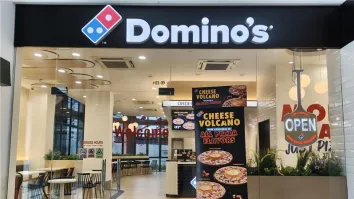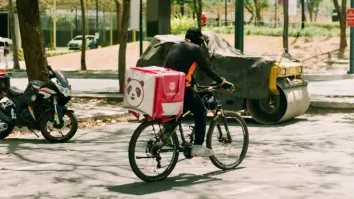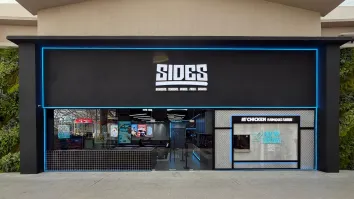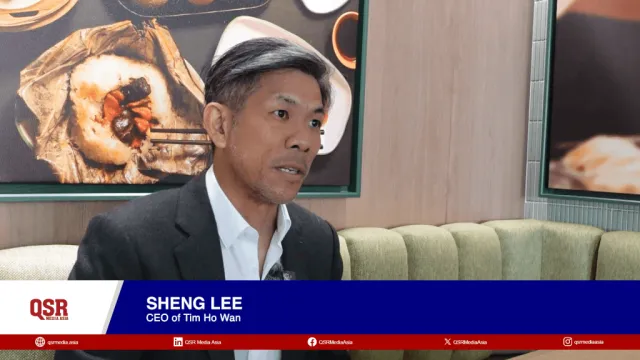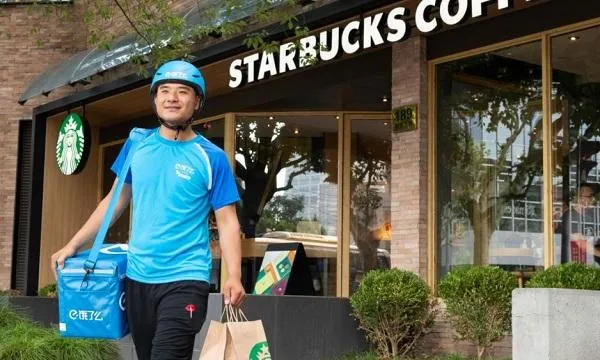
2018: Year In Review
Robot waiters, ‘future’ stores, and a brewing coffee war in China are some of the highlights during the past 12 months.

The brewing coffee war in China
This year saw coffee brands undergoing aggressive expansion in China in a bid to take on Starbucks. Coffee startup Luckin Coffee has expanded at the fastest rate with over 1,700 stores since launching in 2017 and now has a valuation of US$2.2 billion.
Costa Coffee, meanwhile, is in the process of being acquired by Coca-Cola. Analysts say that the beverage company aims to use the coffee chain against Starbucks, who partnered with their rival company PepsiCo.
- Fitch Solutions: “Coffee chains will need to leverage on the vast distribution network of mass grocery retail chains like Walmart, Tesco, Sun Art Retail, China Resource Holding and Auchan to expand into this sector.”
- Starbucks and Costa Coffee to build more stores in China
- Costa Coffee acquisition by Coca-Cola gains approval in China

The Starbucks-Alibaba partnership
Aiming to stay ahead of the competition in China, the coffee giant has partnered with e-commerce company Alibaba. The monumental collaboration started with the Starbucks Delivers platform, that has now expanded to 2,000 Starbucks stores in 30 Chinese cities.
Their most recent achievement is launching Starbucks’ first virtual store that provides customers with both the coffee chain’s and Alibaba’s digital platforms.
- Starbucks confirms partnership with Alibaba Group, set to leverage Ele.me delivery platform by September
- Starbucks-Alibaba partnership unveils first virtual store in China
- Starbucks China's delivery service expanded to 1,100 stores

Future stores and robot staff
In China, robots have been replacing waiters and chefs in the QSR scene as some think that using robots instead of employing staff makes the service more efficient and lowers costs to around a million yuan a year. Later in the year, Haidilao entered a joint venture with tech company Panasonic in launching their first fully automated restaurant, with plans to open 5,000 more of these.
‘Future’ stores, some of which contain self-ordering kiosks and cashless payments platforms, are also being launched by fast food giant. Early January saw McDonald’s unveiled their future store in Guangzhou whilst Yum China opened their first KFC future store last November.
- Alibaba product manager: “In Shanghai, a waiter costs up to 10,000 yuan (US$1465) per month. That’s hundreds of thousands in cost every year. And two shifts of people are needed. But we don’t need two shifts for robots and they are on duty every day.”
- Haidilao, Panasonic form joint venture to launch robot restaurant
- McDonald's introduces mobile app in Hong Kong stores
- Yum China aims to redefine the customer experience with new KFC ‘future' store concept

Going green
Fast food giants in various countries in Asia have announced their initiatives to reduce plastic waste. Starbucks Korea, Burger King Singapore and KFC Singapore have gone strawless.
Starbucks China and McDonald’s Malaysia, meanwhile have installed technologies that aim to reduce the environmental impact including LED lights and solar panels.
- Can sustainability initiatives drive future returns for fast food chains?
- Following a global trend, KFC Singapore officially ditches plastic caps and straws
- McDonald's China pledges to build 1,800 ‘green' stores by 2022

Growing competition in delivery
Competition in the Southeast Asia food delivery scene continues to grow, following Grab’s acquisition of Uber’s assets in the region that led to the growth of GrabFood. Other players such as Deliveroo and foodpanda made headlines with their various initiatives.
- Here’s why food delivery apps aren’t worried about the rise of GrabFood
- Deliveroo general manager: “As the food delivery sector grows, and technology and automation become increasingly accessible and integrated into consumers habits and lifestyles, we will continue to see ways in which brands leverage this for the benefit and convenience of their users.”
- Foodpanda launches pick-up feature for pre-orders in 2,000 restaurants
- Indonesia's Go-Jek raises $2b for expansion and digital investments

US fast food chains making an entry into Asian markets
We also observed US brands looking to make their presence felt in Asia.
Fat Brands, who owns Fatburger and Buffalo’s Express, partnered with Deelish Brands to bring the brand in Singapore whilst Shake Shack also announced their entry into Singapore and Philippines by 2019 after debuting in Hong Kong.
- FAT Brands partners with Deelish Brands to expand across Singapore
- Shake Shack to launch in three Asian markets on 2019
- Popeyes set to enter Philippines' competitive fast food chicken scene
- Five Guys set to make Hong Kong debut

Jollibee’s international growth
Jollibee, the Philippines’ largest fast food chain, has been making headlines around the world following debuts in new markets and a series of strategic acquisitions.
October saw them entering Europe for the first time with their inaugural UK store. They plan to open 25 more stores by 2023 whilst having intentions to have 41 more stores in Hong Kong and Macau in the next five years.
Some investments include a stake in Mexican fast casual chain Tortas Frontera and recently acquiring 100% ownership of U.S. burger chain Smashburger.
- Jollibee now 100% owner of US burger chain Smashburger
- Jollibee to open 25 more stores in the UK by 2023
- Jollibee to bring Panda Express to the Philippines
_0.jpg)
Haidilao’s IPO for international expansion
Chinese hotpot restaurant chain Haidilao collected nearly US$1 billion in their initial public offering. The brand aims to use the funds to expand in the UK, Australia, Canada and Malaysia.
- Haidilao looks to fuel international expansion with Hong Kong IPO
- Hot pot chain Haidilao defies market slump after raising nearly US$1b in IPO

Strategic partnerships
This year also saw companies entering strategic partnerships to bring their respective QSR brands to various markets. BreadTalk Group in particular formed joint ventures with Wu Pao Chun Food and Song Fa Holdings to bring the Wu Pao Chun and Bak kut teh brands in China.
Singaporean fast food chain 4FINGERS acquired a 50% stake in the Australian-based Mexican chain Mad Mex to establish the latter brand in Singapore. Baker & Cook and Pan Malaysia also formed a joint venture to expand the Baker & Cook and Plank Sourdough Pizza stores in Malaysia.

